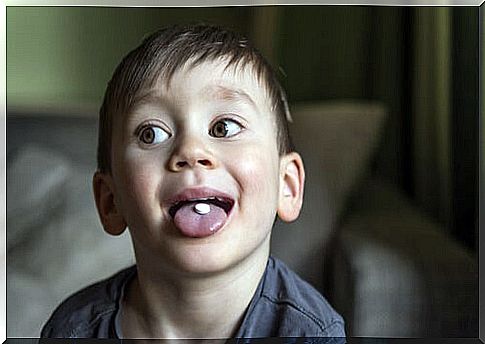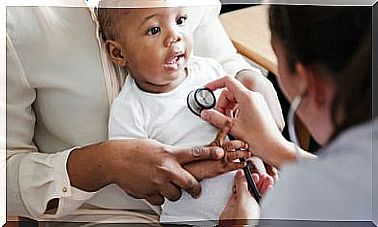Measles In Children: Symptoms, Treatment And Prevention
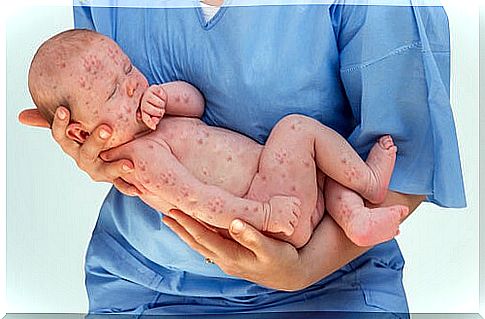
Measles in children is one of the most contagious diseases you can get. Although there is a vaccine against measles, we leave you all the information about its development and cure in case you suspect that your child may suffer from it.
Measles is an infection due to a virus. It is very contagious, since it is transmitted through the air when the sick person coughs or sneezes. It is estimated that almost 90% of people who are in contact with an infected person will get measles unless they are vaccinated. In addition, it can spread through the eyes, mouth, or ears.
It is true that in developed countries measles does not usually cause more serious problems than a few days of general malaise. However, full recovery is easier for children than it is for adults. Adults can present greater complications, hence the importance of vaccination.
Symptoms of measles in children
You have to pay attention when any of these symptoms appear and, above all, go to a doctor immediately if they do.
Symptoms usually start to appear 8-15 days after exposure to the virus . When you see their appearance, notify the school so that the rest of the parents are attentive to the evolution of their children.
- Fever.
- Koplik spots. They are small white spots that appear on the inside of the cheeks.
- Cough.
- Snot
- Conjunctivitis.
- Muscle pain.
- Sensitivity to light.
- Rash. It comes out in the form of little red dots. The rash will spread throughout the body, starting at the head and working its way down.
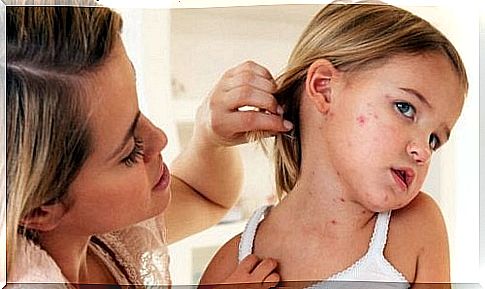
Complications of measles in children
Although in this section we treat the complications of measles, as long as medical recommendations are followed and there is no overexposure to other infections, they do not have to appear.
Possible complications of measles are:
- Ear infection.
- Diarrhea.
- Bronchitis.
- Pneumonia.
- In the most serious case, encephalitis. Encephalitis is an inflammation of the brain. It is very dangerous and can have irreversible effects.
Treatment and prevention of measles in children
There is no specific treatment for measles, although there is for the associated symptoms . It is a viral infection, so antibiotics do not work. The pediatrician will recommend medication to lower your child’s fever and also some ointment or similar to reduce the itchy sensation of the rashes.
Make sure your child scratches as little as possible, as it can cause wounds that leave scars . It’s tricky, but with a little patience you can do it. Encourage him and tell him that in two or three weeks he will be recovered. Yes, it is a long time, but you will have to get used to it.
In terms of prevention, vaccines are the most effective method . Although it generates controversy, the World Health Organization (WHO) recommends vaccinating in the established times, since it is the most effective way to prevent this disease.
The vaccine that protects against measles in children is part of the so-called Triple Viral vaccine , which also protects against mumps and rubella, and is administered in two doses from 12 months of age.
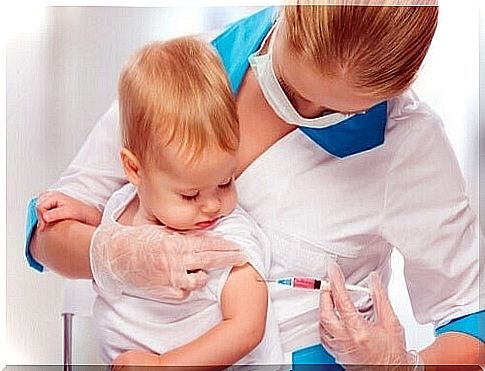
Tips for parents
Since you cannot pass the disease through your child, we want to leave you some tips to help your child cope with the disease:
- Do not medicate him without prior medical advice . It is dangerous to medicate without knowing what your child is suffering from, so go to the pediatrician and explain the symptoms.
- Don’t be mad at him if he scratches the rashes . The itchiness can be excruciating, making it difficult for a young child to understand that it is best not to scratch. Be patient with him and try to find remedies to relieve him.
- Make sure you have had measles yourself or have received the vaccine . You won’t be able to help him if you get sick too, so make sure you are in the best condition. If in doubt, see your doctor to review your vaccination history. If you are not vaccinated or have not had measles, you will have to be extremely careful, since it is an extremely contagious virus.
First of all, we recommend that you be understanding with your child and give him your full attention, many times the affection of parents is all that children need to feel supported and understood.
